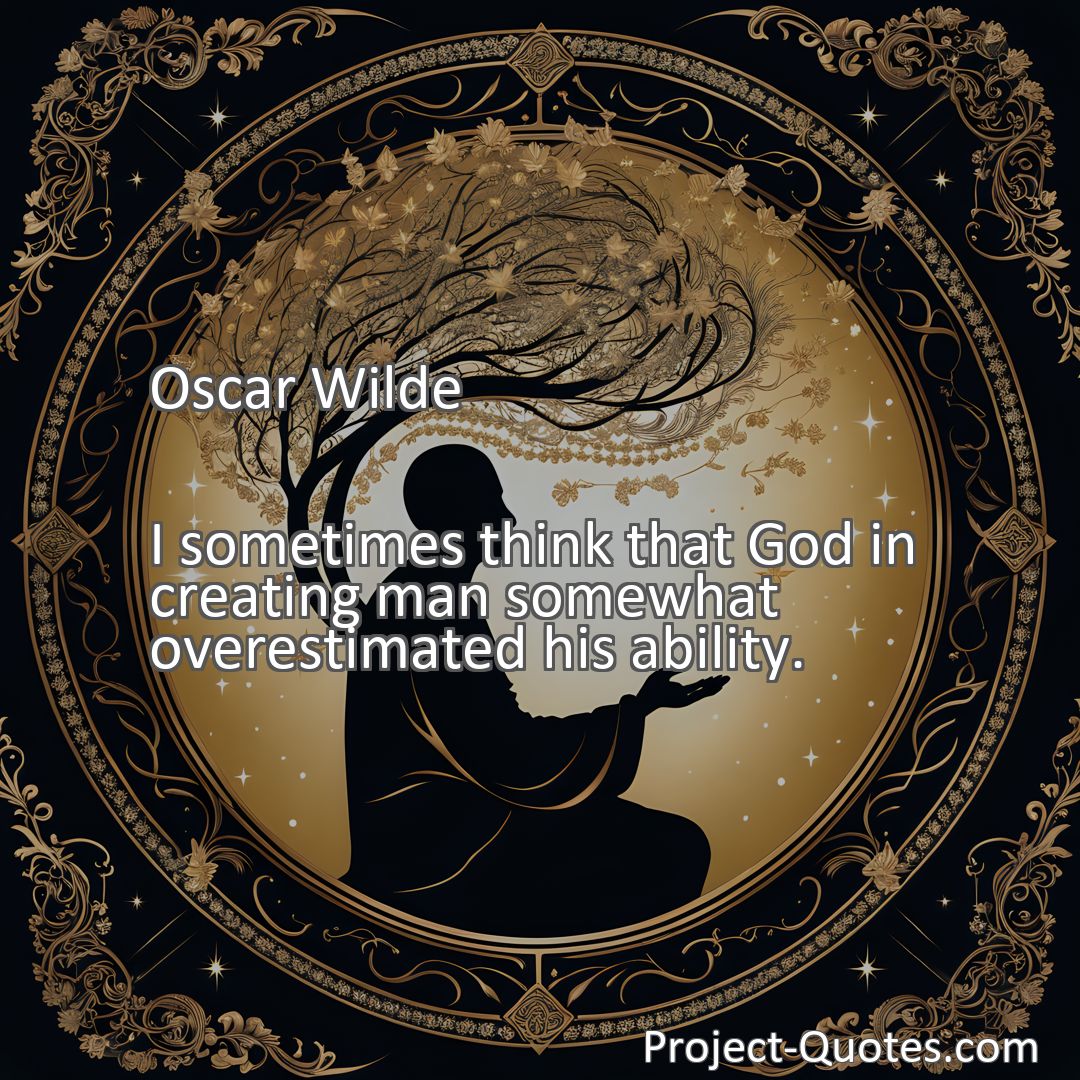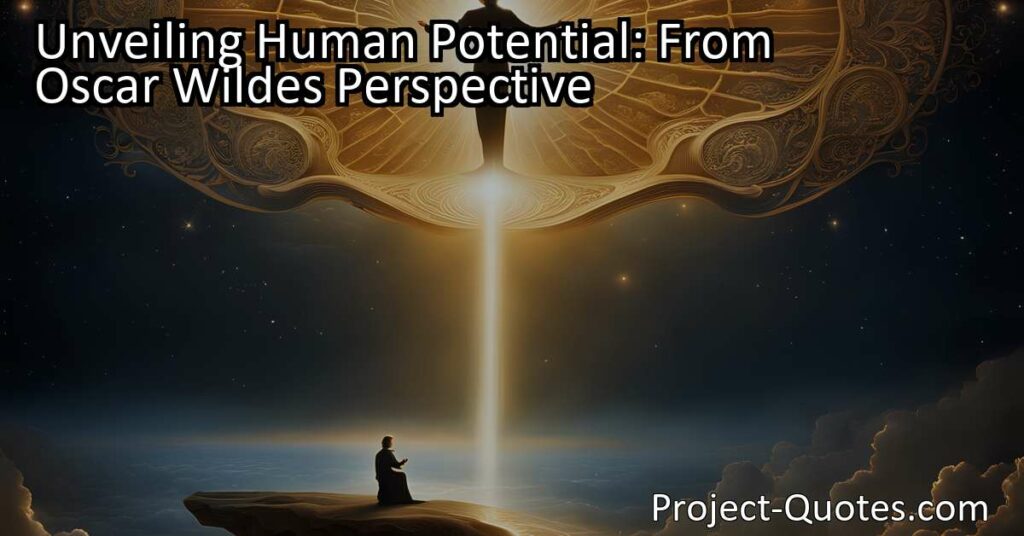I sometimes think that God in creating man somewhat overestimated his ability.
Oscar Wilde
In Oscar Wilde’s perspective, humans have the potential to be like towering oak trees, but growth takes time and effort. It’s important to set realistic expectations for ourselves and others, understanding that perfection is not instant but a gradual journey of learning and growth. By embracing our flaws with humor and staying open to new perspectives, we can tap into our immense potential and find joy in both our triumphs and our imperfections.
Table of Contents
Meaning of Quote – I sometimes think that God in creating man somewhat overestimated his ability.
Oscar Wilde, a writer known for his wit and clever sayings, once made a humorous and thought-provoking remark: “I sometimes think that God in creating man somewhat overestimated his ability.” Now, why would he say something like this, and what could he possibly mean? Let’s dive into this idea and expand upon it.
At first glance, Wildes quote may appear to question the capabilities of humankind. Its as if hes suggesting that when God was creating humans, He expected them to be these almost perfect beings capable of greatness and incredible feats. But then, perhaps, humans didnt quite live up to those sky-high expectations.
This brings us to an interesting point about humans and their potential. People have the capacity to do amazing things. We’ve built towering skyscrapers, traveled to the moon, and created vast networks that connect us instantly with individuals across the globe. The potential within each person is immense, and when we see incredible acts of heroism, kindness, or genius, its easy to think that Wilde might have been wrong; maybe we are as capable as hoped.
However, humans are also known for making mistakes and sometimes even terrible decisions. History is peppered with events that remind us of the human capacity for less-than-stellar actions. Conflicts, disagreements, and mistakes are all part of the human experience. Wilde’s quote, in this light, might be seen as a cheeky nod to the idea that even with our amazing brains and hearts, we still have a lot of room to grow.
So, what exactly is our potential? If we can both create beautiful art and make a mess of things from time to time, what does that say about us? Perhaps it tells us that potential is not a destination, but a journey. Imagine youre on a path through a vast and varied landscape, filled with opportunities to climb mountains or traverse valleys. Everyones path is a little different, but they all involve a mix of uphill struggles and easy, downhill strolls.
Our abilities are tested daily, whether its solving a difficult math problem, learning a new skill, or figuring out how to mend a friendship after a disagreement. Sometimes we might surprise ourselves and others with what were capable of achieving when we give it our all. Other times, we might fall short of our intentions no matter how hard we try. But that doesn’t mean we stop walking the path; it means we learn from those stumbles and keep going.
Let’s consider how we can shine, even when faced with challenges. Learning, for instance, isn’t always about getting things right on the first try. Sometimes, its about sticking with a tough problem until we figure it out. Its about the resilience and determination to improve and grow, bit by bit.
This concept of growth brings another layer to Wildes witty statement. When he talks about God overestimating mans ability, it might also be a reminder to set realistic expectations for ourselves and others. No one is perfect; setting someone up to be perfect is like expecting an acorn to instantly become a towering oak tree without the years of growth in between.
Understanding that growth takes time and effort can help us be kinder to ourselves and to others. It reminds us to practice patience and to appreciate the small steps forward, even if they’re accompanied by a few steps back. We can encourage each other to be the best versions of ourselves without expecting perfection at every turn.
Additionally, Wilde’s remark touches upon the idea of humility. Recognizing that we dont have all the answers and that we can be wrong at times allows us to stay open to learning and understanding new perspectives. This is something incredibly important in our world, where different cultures and ideas are always mingling and interacting. By accepting that we arent perfect and that we can learn from others, we allow ourselves to grow in ways we might not have imagined.
Having the ability to laugh at ourselves, as Wilde often did through his writing, is crucial too. Looking at our flaws with a sense of humor can make us more approachable and relatable. Its a way of saying, “Im human, just like you, and thats okay.” It creates a bond between people, knowing that everyone has their quirks and challenges.
In conclusion, Wildes observant and chuckle-inducing musing offers us a chance to reflect on the human condition. We have this incredible potential that can be humbling and daunting at times. However, even when we dont quite hit the mark of perfection, were still capable of so much. The journey of tapping into our abilities is filled with learning, growth, and a healthy dose of laughter at ourselves.
Every day provides a new chance to explore what we can do, to pick ourselves up if we falter, and to find joy in both our triumphs and our less-than-perfect moments. It’s a beautiful cycle that keeps the world interesting and full of possibility. So, lets keep striving, keep learning, and, like Oscar Wilde, keep a twinkle in our eye as we recognize the grand adventure of being wonderfully, perfectly, human.
I hope this quote inspired image brings you hope and peace. Share it with someone who needs it today!


